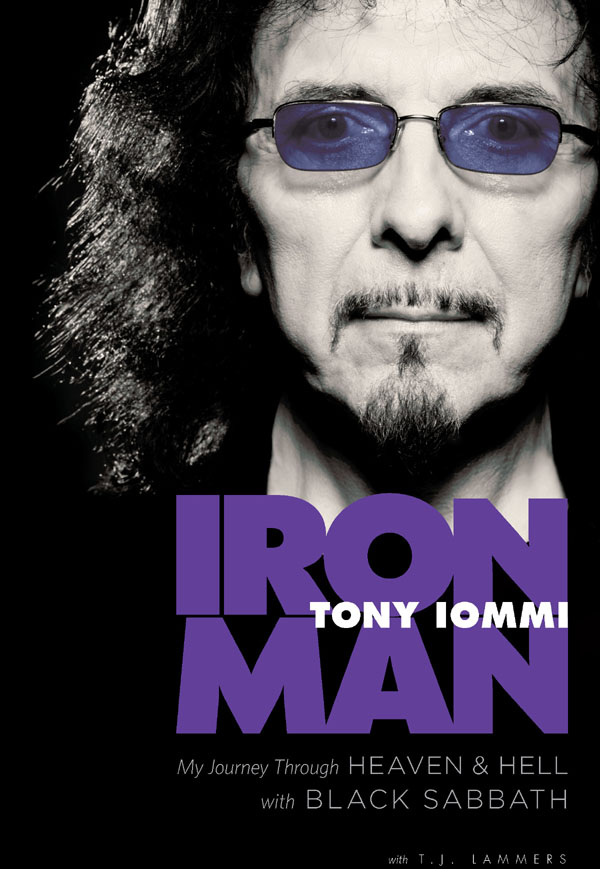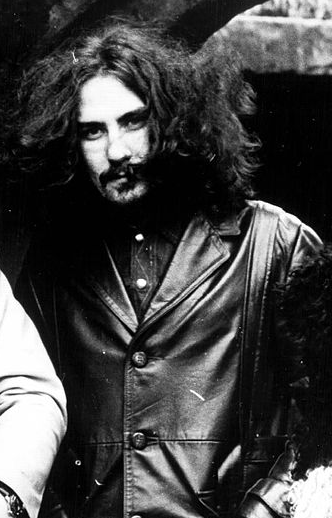
When Black Sabbath shifted from trying to be a hard rock band to trying to make a horror movie sound appear in guitar music, they opened a new world. It was not a world that would resist opening for long anyway, since if you mix Iggy and the Stooges with the prog rock of the same era like Jethro Tull and King Crimson, you get something a lot like Black Sabbath.
But guitarist Tony Iommi, bassist Geezer Butler, vocalist Ozzy Osbourne and drummer Bill Ward did it first, and during the first decade of their career fought through the enduring questions of the genre in prototype form. While Black Sabbath gets classed by most as “proto-metal,” or not quite yet metal, it is also clearly not quite still rock ‘n’ roll. In this perpetual liminal state Black Sabbath, like metal itself would a generation removed, rediscovers itself again and again as a way of outracing the calcification and corruption of message that is common in modern life.
In Iron Man: My Journey Through Heaven & Hell with Black Sabbath, Tony Iommi writes his memoirs for a book that is both everything and Black Sabbath fan could want, and not enough. He writes about everything important and brings out some moments of great clarity, but then at some point the book expands like a drunken conversation and spills too much ink on the less important later Black Sabbath works. Iommi also has an offhand and conversational way of explaining things from his point of view that does not flesh out the details and background enough to let people know what was really going on. However, the juicy stories of rock ‘n’ roll excess, and most of the potent decision points in the Black Sabbath career, are not missed.
Those first songs are often described as scary. I liked horror films and so did Geezer. We used to go to the cinema across the street from our rehearsal place to see them, so maybe it was something that subconsciously directed us to that sort of thing. I know there is a Boris Karloff movie called Black Sabbath, but we never saw it at that time. Geezer came up with the name Black Sabbath and it just sounded like a good one to use. (54)
The narrative starts out fairly crisply and over time slouches into many unresolved threads the way most retrospectives do. The early days were clarity, but after that chaos reigns. Sensibly, Iommi does not spend too long on the days before Black Sabbath, but does set enough of the scene to get the narrative rolling. After that, very little detail is given, and the conversational takes over. Iommi will say that they went to a house or studio somewhere and mention no other detail, but he does spend a lot of time on human relationships. He describes people and their patterns. He also talks a good deal about relationships in the bands and the states of mind of the various players as albums were released.
It may be that a Black Sabbath fanbase wants to hear more about the mechanics behind the later Black Sabbath albums, solos and side projects, but to this writer much of this material was redundant. Not that it was mentioned at all, but that it was internally duplicative and went through similar patterns without identifying them. Like a night at the bar, the description of events begins with a clear context, direction and development of events, but devolves into a description of personalities and factual data that seems to focus on complexities.
I hope it is not insulting to say this, but people are not as interested in the later Black Sabbath works as they are the earlier ones. We would have preferred the same crispness, detail and narrative integration of the first three chapters be applied to the middle three, with the later ones giving less detail and more of a linear narrative. The reason for this is that the formation of those early albums and the Black Sabbath sound is what defined this band for eternity and will make it forever important. The later stuff shows us four guys out of their depth reacting to the changes in their lives.
We used one of Ronnie’s ideas in its entirety, which was ‘Atom and Evil’, the first track on the album. And we used bits of each other idea. Some of Geezer’s riffs would come halfway through, or some of mine. We just swapped them around, building songs. It was a great way of working. INstead of having to come up with everything myself, everybody was completely involved in it from day one, and that helped me immensely. We wrote about six songs this way. (352)
Details such as the above provide meaning to the listener because we are curious about such things. What made some albums more listenable or more interesting than others? In the compositional process, and the formation of decisions, we can see how they are distinct. Sometimes too much focus on personality and politics not only obscures the narrative, but is a substitute for discussing how decisions were made. Buried throughout are nuggets of clarity such as the above. These make the book not only memorable but poignant, as you can see why so much attachment occurs between these musicians, and how their knowledge of each other was more than practical, but a deep appreciation.
Iron Man: My Journey Through Heaven & Hell with Black Sabbath will stay on the shelves because of its subject’s importance to rock music and heavy metal. It will also provide much fodder for others to discuss, as it touches on everything once. While some of us might prefer a two-volume set, with Volume I for the Black Sabbath albums from 1970-1976 and all of the depth of narrative that makes the creative decisions made during that time relevant still, as a quick read and overlook of the Black Sabbath experience Iron Man: My Journey Through Heaven & Hell with Black Sabbath succeeds and also gives us rare if erratic insights into the story behind the band.
4 CommentsTags: bill ward, black sabbath, geezer butler, heaven & hell, Heavy Metal, ozzy osbourne, proto-metal, tony iommi




